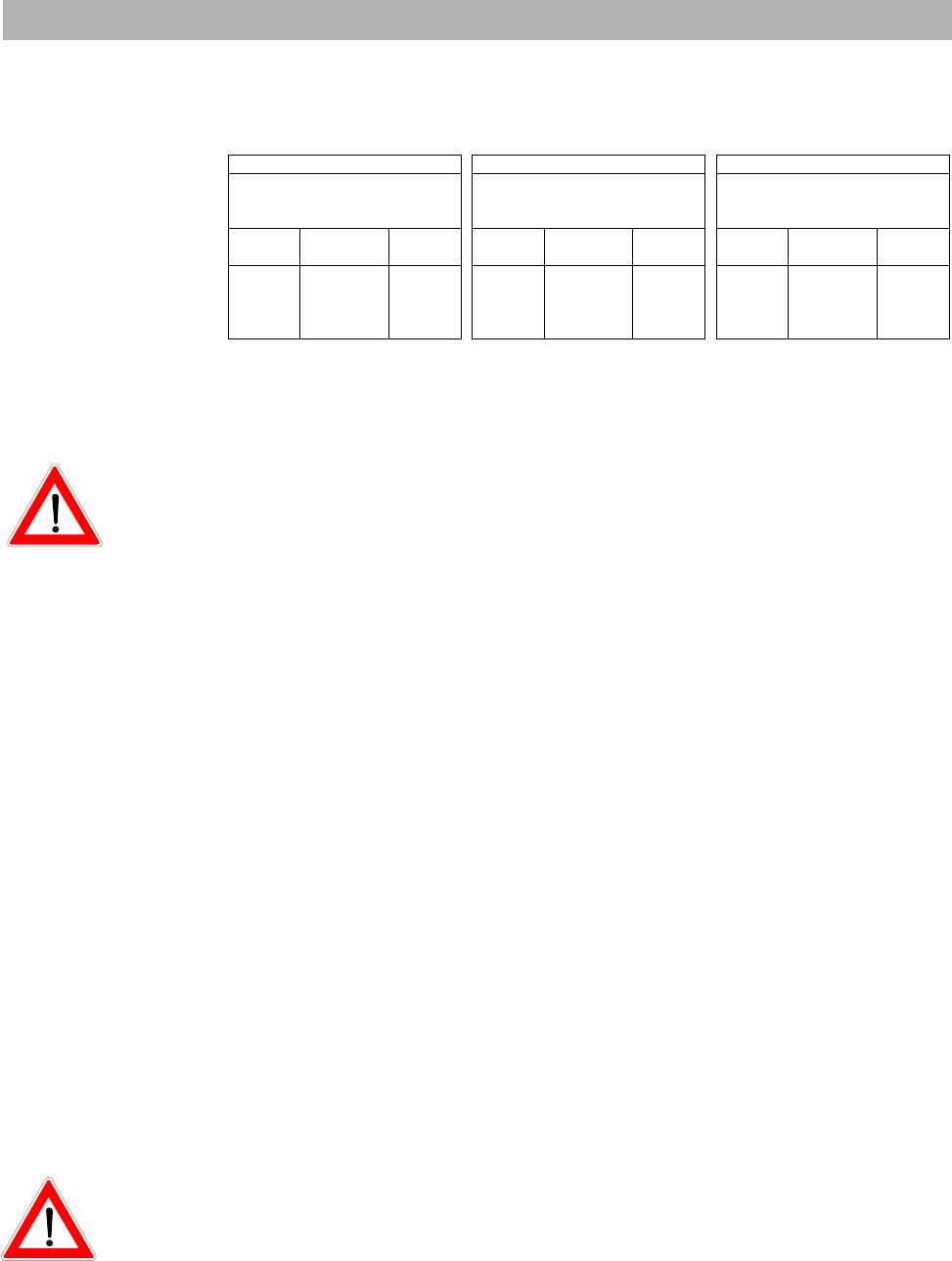
Installation Menu
81
Tone Burst
Here the 22 kHz signal can be set as follows:
Switching states for setting: Switching states for setting: Switching states for setting:
22 kHz Signal —> High/Low
and
Tone Burst —> Pos. A/B:
22 kHz Signal —> Pos. A/B
and
Tone Burst —> Opt. A/B
22 kHz Signal —> Pos. A/B
and
Tone Burst —> High/Low
Low
High
22 kHz
22 kHz
Off
On
Pos Tone Burst 22 kHz Low
High
Tone Burst
Tone Burst
0
1
Pos. 1
Pos. 2
Tone Burst
Tone Burst
0
1
1
2
3
4
0
0
1
1
Off
On
Off
On
Pos. 1
Pos. 2
22 kHz
22 kHz
Off
On
DiSEqC™
If the receiver is connected to a DiSEqC™ switching matrix, set the
menu option to “On”.
The switching criteria and the input assignment of the DiSEqC™
switching matrices must be observed. You should therefore
follow the description of the switching matrices or contact the
engineer who installed the reception system.
DiSEqC™ Repeat
If the receiver is operated in a reception system with two or more
DiSEqC™ switching matrices connected in series (cascaded), the
DiSEqC™ command must be repeated.
In this case, set the “DiSEqC™ Repeat” menu option to 1 or 2.
Default setting: “Off”
UFO
®
mini
In a subscriber-controlled processing system, the input frequency of
the receiver is a fixed setting. The subscriber-controlled processing
system transmits the signals at this frequency. The reception
parameters for programme selection are communicated to the
reception system by a DiSEqC™ command and set.
The setting that has to be selected depends on the design of the
subscriber-controlled processing system.
The setting is made according to the installation instructions for the
subscriber-controlled processing system.
Remote Frequency
If you have set the UFO®mini menu option to “ON”, use this menu
option to make the setting from the transmission frequency.
The transmission frequency to be set is specified in the installation
manual for the subscriber-controlled processing system.
You should therefore be sure to follow the instructions given in
the installation manual for the subscriber-controlled processing
system.


















